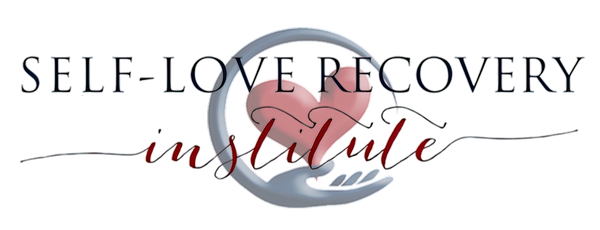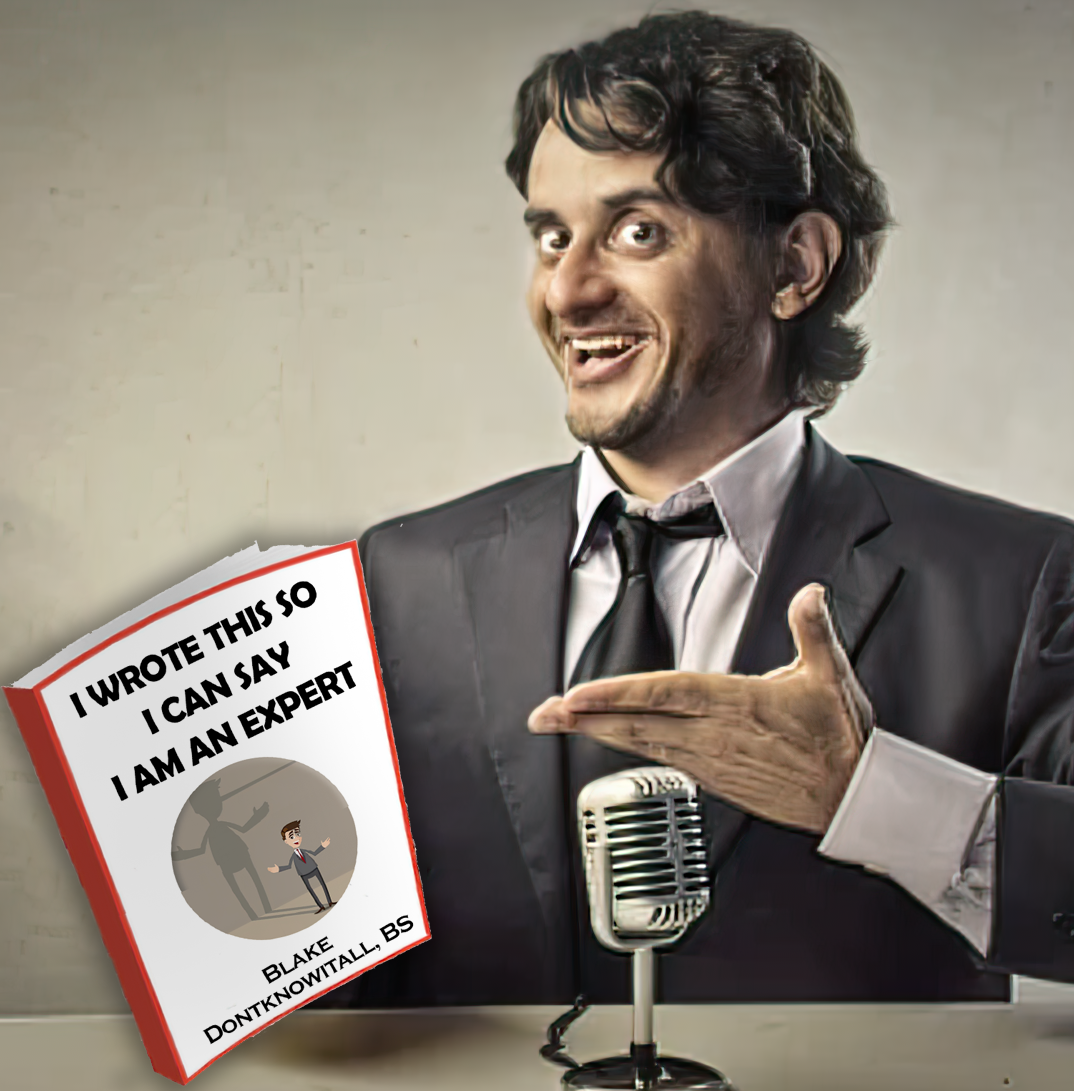
Written by Ross Rosenberg, M.Ed., LCPC, CADC
Self-Love Recovery Institute – President/CEO
Psychotherapist, Educator, Author, Expert Witness
FAKE EXPERTS
A few months ago, a new client tearfully expressed her disappointment and severe frustration over an online life coach who she sought help for her codependenDerek Chevrefilscy and narcissistic abuse. Like thousands of others seeking critical mental health and life skill services, she was unable to discern the difference between coaches or psychotherapists who prematurely or inaccurately described themselves as specialists or experts from those with legitimate and accurate claims.
The most influential, and perhaps manipulative element of such self-described “gurus” is the exaggerated promise for long-term relief from exquisitely painful narcissistic abuse. These “successful” content producers purposely hide their lack of problem-specific education, training, and experience, all of which would qualify or disqualify them from being legitimate codependency or narcissistic abuse treatment specialist. Perhaps the most effective strategy that falsely proclaimed experts rely upon is their emotionally evocative and inspiring heroic survival story over their own pathological narcissist, and the higher-level lessons they learned because of it.
Despite my respect and appreciation for life coaches and psychotherapists, I took notice of an emerging pattern of harmful incompetence from a sub-group of “online famous” individuals who prematurely or without merit, describe themselves as codependency and narcissistic abuse experts. With increased experience, it became easy to identify such individuals, as their free narcissistic abuse or codependency-focused online content was inextricably tied to heavily promoted professional services that over-promise positive outcomes.
MARKETING FUNNELS
Bringing in paying customers is often achieved through highly interesting, relatable, and evocative online content, that, by design, entices people to explore their profitable service-based website. The financially “successful” but harmful false experts lure people into their programs or treatment through enticing and interactive websites, that are designed by experienced marketing professionals.
The other effective “hook” is strategically developed online content that is invisibly connected to a business plan, otherwise known as a marketing funnel. The marketing funnels that fake experts rely upon are often the brainchild of highly specialized mentors or handsomely paid online marketing specialists.
According to Christina Gillick, a writer for CrazyEgg.com, the primary goal of marketing funnels is to turn leads into customers. They successfully cast a broad net to drive brand awareness, capture as many leads as possible and then nurture prospective customers through the purchasing decision, which narrows in each stage of the funnel.
Without this marketing “golden egg,” these fictitious experts would not be able to create profitable online mental health treatment or life-coaching programs that are designed to lure in victims of narcissistic abuse or Self-Love Deficit Disorder/SLDD™ (my term for “codependency”). Therefore, vulnerable, naïve, and misled sufferers of SLDD, often fall victim to the glitzy presentation of promised help, marketing funnels, creative payment options, and the lower price tag when compared to legitimate mental health services.
THE ANGRY BULLY PULPIT
Many of these “experts” dangerously and irresponsibly promote a pure “victim” position that blames the narcissist for the harm, while claiming complete innocence in any part of the dysfunctional relationship “dance[i].” Such individuals even use their online platform as a judgmental and blaming “bully pulpit” where they rage against narcissists while spewing out angry vindictive and finger-pointing vitriol, most of which is disguised as life-changing advice.
Sadly, such “educational” and “supportive” stories, advice, and warnings, inspire droves of SLDs (people with SLDD) to “bear arms” against their narcissistic captors. The futility of a defensive or aggressive challenge to the more manipulative and cunning narcissist is best summed up by George Bernard Shaw: “I learned long ago, never to wrestle with a pig. You get dirty, and besides, the pig likes it.”
OVER-PROMISING
It became increasingly apparent that these self-described “experts” build profitable businesses by providing inaccurate, and at times, fabricated descriptions of themselves and the services they provide. Additionally, they convince people to squander their valuable resources on their program or treatment services by providing exaggerated, unrealistic, and often, patently untrue promises for positive outcomes.
Potential clients who lack sufficient financial, insurance, and/or transportation resources are even more susceptible to unrealistic promises for long-term or permanent relief. For individuals impacted by personal, family, cultural, and even societal mental health stigmas, over-promising services from anyone other than a psychotherapist may be even more attractive.
WHAT DOES IT TAKE TO BE AN EXPERT?
Reaching true and verifiable expert status is not as subjectively determined as one would believe. Independent of a person’s profession, achieving legitimate expert status requires the fulfillment or achievement of unambiguous and universal standards. The following list summarizes the criteria that reliably account for a legitimate claim to be an expert.
- A graduate degree, certification, and licensing in the field of one’s expertise.
- At least a decade or more of professional experience in the area they proclaimed to be an expert.
- Possess reliable and effective skills/abilities that are recognized by their professional community as superior to the larger community.
- Ongoing supervision, education, and training in the field of their expertise.
- Experiences and accomplishments that have been openly validated by peers in their professional community to be at an “expert” level.
- Testimonials from legitimate and not manipulated recipients of their expert services.
- Authored books, articles, and/or research on the topic of their expertise.
MANIPULATION AND MISREPRESENTATION
Because sufferers of SLDD and narcissistic abuse are characteristically afraid to inquire about a person’s background or promise of positive outcomes, the over-promising “expert” avoids accountability. It should be noted that many of the fabricated experts are not purposely deceptive and manipulative, they, and the more pathological variety, significantly harm trusting and potentially naïve suffers of narcissistic abuse and “Self-Love Deficit Disorder/SLDD™.”
The below list illustrates the pattern of planful manipulation, inaccurate representation of qualifications and abilities, and unrealistic promises for relief.
- A client desperately seeks help for their SLDD or abuse.
- Found an inspirational and compelling online information source that makes them feel understood, “seen,” and optimistic about ending their chronic suffering from narcissistic abuse.
- The enlightening and passionately optimistic person believably describes themselves as an expert in the problems with which they most need help.
- Lured to contact them because of their harrowing backstory/engrossing survival story.
- Seduced by highly engaging and professional appearing websites and portals to their “program.”
- Believed compelling and glowing testimonials.
- Unknowingly fell victim to an invisible marketing funnel[ii] that, without knowing, reinforced their confidence to seek help from this individual.
- Was enticed by the seemingly lower cost or extended payment plans.
- Eagerly participated in the promise-rich “program,” which could not help them solve the problem for which they sought help.
- Stopped participating when positive outcomes were not achieved or when they felt inadequate because of not being able to reach them.
- Did not think to attribute their “failure” to the program or the person delivering its services.
- Experienced shame and hopelessness about their “untreatable” problems.
IATROGENIC TRAUMA
Whether a deceptive life coach or a psychotherapist, the misrepresentation of one’s skills and services may cause iatrogenic trauma. Such trauma is simply defined as long-term suffering and distress that is directly caused by treatment providers who either falsely claims their abilities, and as a consequence cannot deliver on what the client/patient most needs; or are responsible for highly consequential treatment failures.
Online content that is generated by over-promising false experts has the capacity to stir up or activate traumatic memories accompanied by destructive and dangerous feelings and thoughts[iii]. As described in detail in both my “Human Magnet Syndrome[iv]” and “Codependency Cure[v]” educational material, codependents, or people who are “Self-Love Deficient (SLD), have profoundly limiting and at times incapacitating struggles with PTSD.
For chronically gaslit SLDs who have been brainwashed to identify with an implanted “self-narrative[vi]” and isolating and highly shaming contrived problems, the risk for Iatrogenic Trauma is far more severe, and consequently harmful. Hence, online-generated services that accidentally or purposely trigger overwhelming and distressing anger or shame, or disassociated memories, can be highly consequential to unsuspecting SLD victims. For this reason, it can be safely assumed that seemingly benign online content may unintentionally provide “gasoline” as the solution to extinguish an SLD’s life-long engulfment in a “narcissistic abuse firestorm.”
THE FIFTY-SHADES of PATHOLOGICAL NARCISSISM
After eight years of disappointing and heartbreaking experiences, I decided to try to solve the problem instead of bringing attention to it. This is when I postponed the writing of my “Codependency Cure™ book, while dedicating eight months to creating an expert-level educational seminar series that was dedicated to clinically accurate and practical information and guidance about Pathological Narcissism, narcissistic abuse, Self-Love Deficit Disorder, and the escape from all of them.
This ambitious educational project provides a counterpoint to the deluge of victim-oriented, overly simplistic pop-psychological explanations, “vilify the bad guy” pronouncements and unrealistic promises for relief. In determining the scope of content to include, I reviewed a great deal of information on pathological forms of narcissism, narcissistic abuse, and effective treatment programs for them. Moreover, I updated thirty-plus hours of my former seminar material on these topics.
The title for this 3-day / 18-hour seminar series is “The 50-Shades of Pathological Narcissism.” Only clinically accurate and verifiable information about SLDD/codependency, narcissism, and narcissistic abuse was included. With regards to my unique content, I only incorporated concepts, theories, explanations, and treatment recommendations that were unanimously affirmed by my 240,000 YouTube Channel subscribers, former seminar and retreat participants, and the feedback given to me by readers of my books and social network connections.
Because people in the helping professions need to know this information as much as the general public, it was created to resonate with as many types of potential participants. This educational series should provide victims and survivors of narcissistic abuse and those afflicted by Self-Love Deficit Disorder/codependency with the information that they so direly need. The titles of the seminars are as follows:
- Pathological Narcissism and Narcissistic Abuse
- How and Why SLD’s/Codependents Are Trapped by Narcissists
- How to Survive and Escape Narcissistic Abuse. Tools and Strategies
STOPPING THE INSANITY
In closing, a person who relies on online content from falsely proclaimed experts as their primary source of help for narcissistic abuse, codependency, or “Self-Love Deficit Disorder™, must be ever-so careful. Whether it is through guidance, information or the services from talented coaches, psychotherapists, and other legitimate service providers, the help is out there! Just take the time to do some basic research, and follow the adage that I too often heard, but did not follow: “if it its too good to be true, it probably is.” Take the time to make good/safe decisions as there is a lot riding on it!
Click here for more about Ross Rosenberg
ENDNOTES
[i] Discussed in detail in Chapter 2 of my “The Human Magnet Syndrome: The Codependent-Narcissist Trap” book
[iii] Posttraumatic Stress Disorder. my 2018 book, “The Human Magnet Syndrome: The Codependent-Narcissist Trap”
[iv] My 2018 book, “The Human Magnet Syndrome: The Codependent-Narcissist Trap.” The Human Magnet Syndrome books – Self-Love Recovery Institute (selfloverecovery.com)
[v] My “Codependency Cure” work, which is also known as my “Self-Love Recovery Treatment Program,” was created after creating the “Human Magnet Syndrome” material. Its focus is on further explanations for the cause of SLDD, and the treatment to permanently resolve it. Material explaining this work is available at the Self-Love Recovery Institute’s website www.SelfLoveRecovery.com).
[vi] Included in The Human Magnet Syndrome’s Chapter 11, “Gaslighting and Narcissistic Abuse Syndrome.”


0 comments